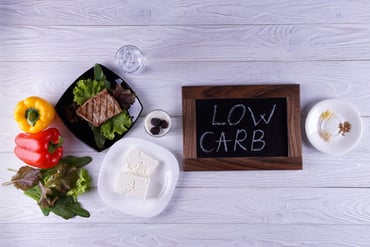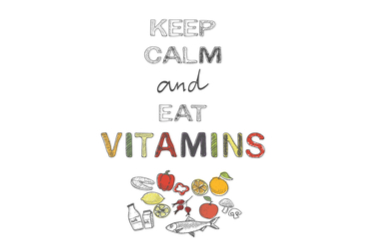Get the Facts on Carbohydrates: Sports Nutrition
Carbohydrates are needed to provide energy during exercise. It is stored mostly in the muscles and liver as glycogen.
During exercise, especially intense exercise, glycogen is broken down and changed to energy that allows your muscles to work optimally. Having a low glycogen stores can leave you feeling tired and make your training even harder. Therefore, getting enough carbohydrates in your diet can ensure that you glycogen stores are adequate to provide you with the energy you need.
Before exercise: Include carbohydrates in your pre-exercise meal or snack. Plan to eat a meal or a snack 1-4 hours before you exercise so that you’re not too hungry or full. This will keep your blood sugar levels stable and thus giving you enough energy to exercise. Also, limit the amount of fat and fiber in your pre-exercise meals as it would take longer to digest them, which may leave you feeling bloated. (“Sports Nutrition (Adult)”, 2017)
Try these meal/snack ideas:
● Oatmeal or whole grain cereal with milk
● Whole grain toast with peanut butter
● English Muffin
During exercise: Aim for 30-60g of carbohydrates/hour if your exercise is intense and last longer than an hour. This is particularly important for full or half marathons, long cycling rides and races, soccer and hockey games and tournaments. (“Sports Nutrition (Adult)”, 2017)
It may be difficult to eat while exercising, so a common “go to meal” is sports drinks or gels, which gives you plenty of carbohydrates and electrolytes. They are also low-fibre, easily digested carbohydrate-rich food, which can prevent an upset stomach, bloating and cramping.
After exercise: Eat a carbohydrate-rich meal or snack after intense exercise that last more than an hour. This can help you refill your glycogen storage stores for the next time you exercise. However, a carbohydrate-rich snack or meal is not needed if you exercise less often or after lighter activities, like walking, yoga, leisure swimming or bike riding.
Examples of post-exercise meals include:
● Turkey sandwich, apple and some greek yogurt
● Salmon, sweet potatoes, and mixed veggies
● Smoothies with banana, berries with low-fat milk/yogurt
Carbohydrate loading
This is a technique used by competitive and high-level athletes to maximize muscle glycogen stores before a long, intense exercise, or a sporting event like a marathon.
Carbohydrate loading is particularly helpful when exercising last >90 minutes, and when it is difficult to eat carbohydrates during exercise. It helps you to perform better and train longer than normal. (“Sports Nutrition (Adult)”, 2017)
If you are going to try carbohydrate loading to improve your performance, first try it at least a few weeks before your sporting event to make sure it feels right for you.
Aim for 10-12g of carbohydrate per kg of body weight per day for 1-3 days prior to your sporting event. If you weigh 60kg – that means you have to aim for 600-720g/day. When carbohydrate loading, divide the carbohydrates over your meals or snacks for the day, and make sure you eat some carbohydrate immediately after any exercise that you are still doing. (“Sports Nutrition (Adult)”, 2017)
Note that carbohydrate loading often comes with a short-term weight gain due to the water that is stored with the glycogen stored in your muscle, rest assured that it is normal and short term!
For more personalised nutrition advice, come to speak our nutritionist!
Carbohydrate content in some common food:
| Food | Serving Size | Carbohydrates (g) Approx. |
| Bagel, plain | 1 whole | 45 |
| Banana | 1 large | 30 |
| Saltine Crackers | 13 pieces | 30 |
| Energy gel | 1 package | 20-30 |
Reference:
Canadian Nutrient File: Compilation of Canadian Food Composition Data: Users’ Guide [Health Canada, 2010]. (2017). Hc-sc.gc.ca. Retrieved 17 May 2017, from http://www.hc-sc.gc.ca/fn-an/nutrition/fiche-nutri-data/user_guide_d_utilisation01-eng.php
Sports Nutrition (Adult). (2017). Dietitians of Canada. Retrieved 17 May 2017, from https://www.dietitians.ca/Your-Health/Nutrition-A-Z/Sports-Nutrition-(Adult).aspx


